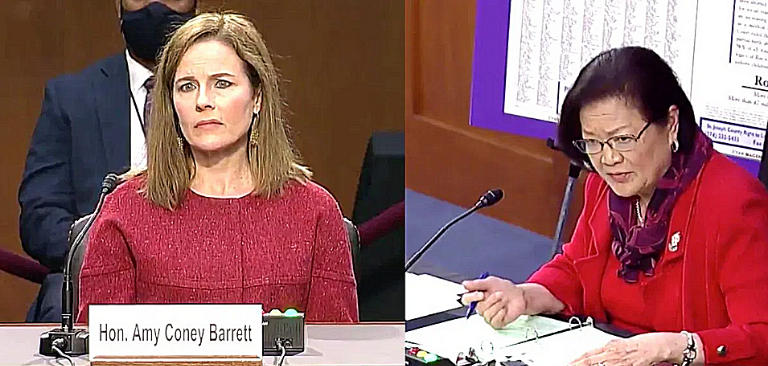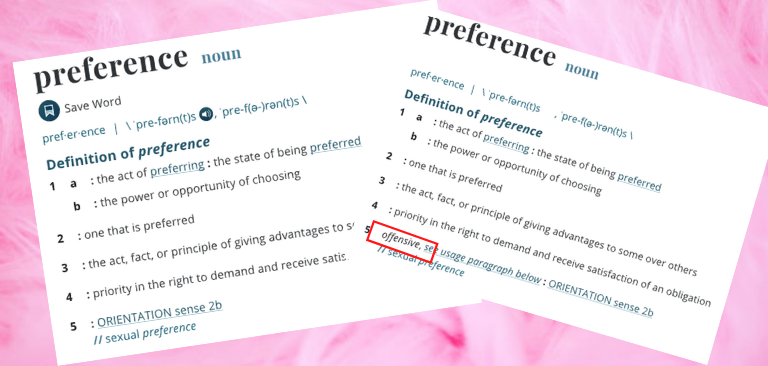The English language is undergoing a fast-tracked and forced devolution, championed by certain political and media circles, mostly centering around sexual and other identity politics.
And online dictionaries like Merriam-Webster are keeping up with this process rather efficiently, almost in real time.
This time, it was the term “preference” that got a “makeover”: when denoting orientation, as in, sexual preference, the word is now labeled as “offensive” as of yesterday.
A comparison of the same definition on the Merriam-Webster site just days before shows that at that time, using the term sexual orientation was not considered offensive.
Furthermore, US politicians and media like Leon Panetta and CNN are on record using “sexual preference” without any qualms: Panetta, Obama’ secretary of defense, was comfortable talking about sexual preference (in the context of attacking Donald Trump as intolerant).
CNN, meanwhile, mused about what being gender-fluid really means to conclude that it doesn’t have to do with somebody’s – sexual preference.
So, what changed, and how did this expression become offensive? (Another interesting question is the editorial process going on behind the scenes at Merriam-Webster, and how and why this popular online dictionary makes its decisions that are ultimately capable of reshaping a society’s mindset).
On the first point, what happened is some drama during the Senate confirmation hearing of Supreme Court nominee Amy Coney Barrett, who, when asked about her stance of continued support for LGBT rights and freedoms, replied that she has not, and does not plan on discriminating against anyone based on their sexual preference.

Some Democrat senators, however, quickly latched onto this choice of words as proof that the judge might in fact be prone to such discrimination.
The argument made against Barrett was that if truly committed to LGBT causes, she would have used the term “sexual orientation” instead.
That’s regardless of the fact that even Ruth Bader Ginsburg, whom Barrett should replace, and Democratic presidential hopeful Joe Biden have also used “sexual preference” in their speech.
But now Barrett has apologized, and Merriam-Webster has swiftly “corrected” itself.
If you're tired of censorship and dystopian threats against civil liberties, subscribe to Reclaim The Net.









